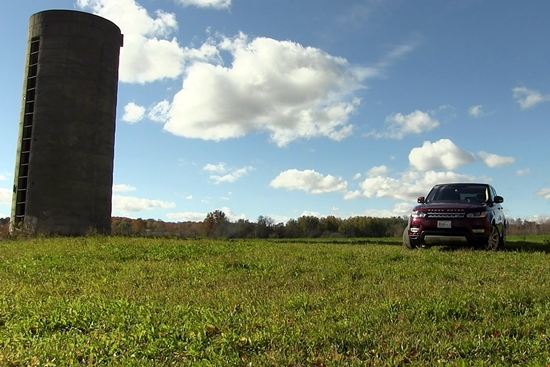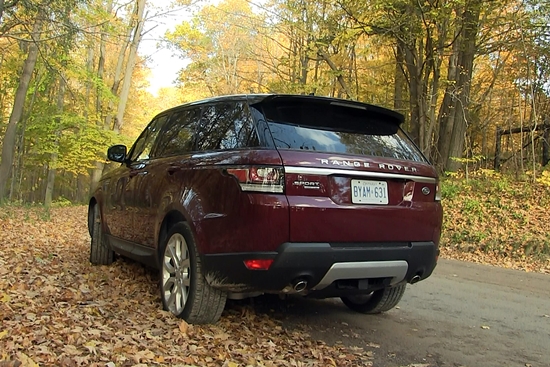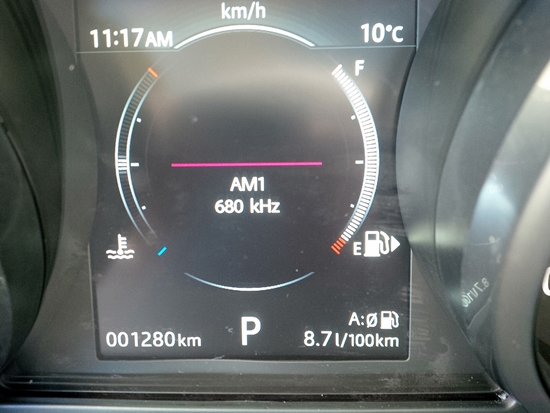
Talk about a crazy time to bring a new Diesel powertrain variant to market.
While the development cycle of a new automobile tends to run the course of a few years, major news events can happen literally overnight.
With the push towards more fuel efficient vehicles on North Amercian roads, the folks at Jaguar Land Rover announced at the beginning of this year that they were set to launch a new diesel powertrain to fit inside both the 2016 Range Rover and the smaller sized Range Rover Sport. The announcement was met with much interest and positive feedback and both journalists and prospective buyers alike eagerly awaited the diesel variants to arrive.
Then came the entire Volkswagen diesel debacle.
When word leaked that Volkswagen had found a way to fudge the emissions tests to produce better results than normally are achieved with their 2.0 litre turbo-diesel engines, the world suddenly shone a suspicious light on all diesel powertrains. If one diesel makes was fudging the results, others may be doing the same!
To explain diesel engines and all the intricacies around them that relate to improved fuel economy, but also increased pollution is a very complicated process. Explanations are best suited for engineers to understand and even I have a tough time wrapping my head around things, despite covering them regularly.
The most simple thing to understand from an environmental perspective is that diesel engines are about 1/3 more fuel efficient than most regular gasoline engines, but at the same time, the emissions from these engines are higher in harmful pollutants – particularly Nitrogen Oxide (NOx).
Automakers have attempted several methods to reduce the amount of pollutants coming from diesel engines. The most commonly used approach involves the adding of Diesel Exhaust Fluid (DEF) to the exhaust steam which converts harmful emissions into harmless elements. In addition there are other approaches included as well.
In the case of the new 3.0L V6 turbocharged diesel engines being put into the new Range Rover and Range Rover Sport, the engineers went deeper into the design and mechanics of the engine to find greater efficiencies in both fuel efficiency and emission levels. I’ll refrain from trying to technically explain it (although I try to a certain extent in the video review featured at the top), but the main takeaway, and one that Jaguar Land Rover is very adamant to point out, is that they do not use any emission defeat devices such as was found in certain Volkswagen models, and that there has never been any suspicion of them doing so.
Moving beyond the much publicized issues related to diesel powertrains, the specific diesel engine found in the new Range Rover Sport Td6 is quite impressive. Offering 254 hp and an impressive 440 lb/ft of torque, there is plenty of pep and well suited to the lineage and reputation maintained by the model’s other variants. Diesel engines offer their highest torque levels typically at low RPM’s and the Td6 is no different with peak torque coming at just 1750 RPMs. This is effective when it comes to towing, and the Range Rover Sport Td6 offers a maximum tow capacity of 3,500 lbs.
See Also: 2015 Land Rover Discovery Sport – TEST DRIVE
See Also: TEST DRIVE – 2012 Range Rover Evoque
Fuel economy is also a big motivator when it com es to diesels. Land Rover claims that the Td6 offers a 32% increase in fuel efficiency when compared against the standard turbocharged V6 found in base Range Rover Sport models. With the Td6 the posted combined fuel rating is 9.4 L/100 KMs or 25 US MPG. In my week long test I was actually able to better that by achieving 8.7 L/100 KM or 27 US MPG. To get a combined fuel economy rating, a ratio of 55% city driving and 45% highway driving is used. During my week I would estimate that my highway driving was closer to 60% which probably explains the improvement, but suffice to say my observations are that the posted fuel economy numbers here are pretty much on the mark.
With the Range Rover Sport Td6, one aspect I was most surprised by, and impressed with was with how effectively mitigated the notorious diesel ‘knocking’ sound was. The well-known diesel knocking noise is the result of a different combustion process and it is what many detractors point to as a reason they don’t want to own a diesel. However with the Td6, the sound engineers did a wonderful job at mitigating this noise, not only inside the cabin but even outside as well. There was more than one time during my week where I almost forgot I was driving a diesel, and that is not something that’s easy to do!
See Also: ENVIRO DAD TEST DRIVE
CONCLUSION
While we must keep in mind that with an almost $100K price tag (Canadian Dollars) the 2016 Range Rover Sport Td6 Diesel is a vehicle choice reserved for the affluent, it nonetheless is a vehicle worthy of attention and consideration for those who can occupy this level of rarefied air. With well-established levels of performance and luxury, the addition of a fuel-efficient powertrain creates an appealing mix of luxury with pragmatic responsibility. It may not be the 510 hp performance beast that is it’s SVR stablemate, but then that certainly isn’t everyone’s cup of tea.
BY THE NUMBERS (Out of 10):
LOOK/DESIGN:
EXTERIOR 8.5
INTERIOR 9.0
DRIVE: 9.0
GREEN FACTOR: 9.0
FAMILY FACTOR: 8.5
TECHIE STUFF: 9.0
VALUE: 7.0
(MSRP AS TESTED
TOURING – $99,359 CDN)
OVERALL: 8.5




Leave a Reply